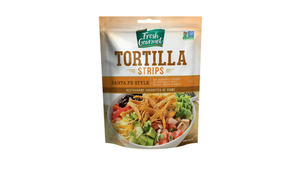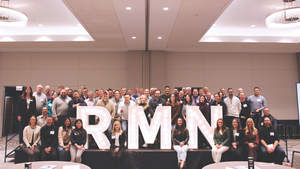Growing the ‘Other’ Albertsons
Albertsons LLC is interested in growing its store base though possibly not in Florida. Bob Miller, chief executive officer of the Boise, Idaho-based company, made it clear in an interview with SN that Albertsons is looking for growth opportunities all over the country. We're an operating company, and we're here to stay, Miller told SN. Asked about Florida, Miller replied, We've gotten to a healthy
June 1, 2009
ELLIOT ZWIEBACH
Albertsons LLC is interested in growing its store base — though possibly not in Florida.
Bob Miller, chief executive officer of the Boise, Idaho-based company, made it clear in an interview with SN that Albertsons is looking for growth opportunities all over the country.
“We're an operating company, and we're here to stay,” Miller told SN.
Asked about Florida, Miller replied, “We've gotten to a healthy store base, and we're more interested in improving operations at our stores than in selling any of them.”
Industry observers in Florida believe otherwise.
Albertsons LLC operates 248 stores, with annual volume estimated at $4.25 billion, out of three divisions: the Southwest, encompassing 113 stores in Arizona, Colorado, New Mexico and Utah; Texas, with 99 stores in Texas, Arkansas and Louisiana; and Florida, with 36 locations.
Albertsons LLC was originally regarded as a short-term operator formed solely to dispose of the under-performing properties of the original Albertsons organization after Supervalu acquired the chain's premium stores in mid-2006.
However, under Miller, Albertsons LLC is thinking long-term — actively seeking new-store growth and planning to invest in upgrading the store base in Texas and the Southwest with increased capital spending this year.
“When we started three years ago, we were a big seller, and the goal was to close or sell as many properties as we could,” Miller explained.
“But the stores have done better than I ever thought — and I'm a pretty optimistic guy — and now we're more interested in making acquisitions than in selling. And while we're more focused on looking at growth opportunities within our existing operating areas, that doesn't mean we won't look at opportunities elsewhere.”
The only geographic regions he ruled out for acquisitions are California and the Northeast — both areas where Supervalu-owned Albertsons stores operate.
The size of the opportunity doesn't matter, Miller added, noting that Albertsons LLC acquired eight stores in New Mexico from Sacramento, Calif.-based Raleys in August 2007 and also made an offer for Keller, Texas-based Minyard Food Stores last year.
“We continue to look at anything that's available, and we would be interested in finding another deal like either one of those,” he said.
The company is looking for full-sized stores “that do a good volume,” he added. “Our average size exceeds 50,000 square feet, and we wouldn't want anything smaller.”
Albertsons LLC would consider a large acquisition, he added, “but it would have to make sense for us and create value for our shareholders.”
The chain looked at the Bruno's and Bi-Lo stores after both had filed for Chapter 11 bankruptcy protection earlier this year, Miller said, “but they didn't meet our criteria for high-volume stores.”
Miller made it very clear that the Texas and Southwest divisions are not for sale, though he was less definitive about the future of the Florida division following the sale last year of 49 of its 85 stores there to Publix Supermarkets, Lakeland, Fla.
“Despite the recession, Florida is our best area, with comparable store sales exceeding 10% — though comps are also strong in Texas and the Southwest,” Miller said.
“Customers in Florida liked Albertsons before the sale [of the 49 stores to Publix], and we've been able to convince them to stick with us and shop at other locations if the one they used to shop at was sold,” he said. “And we're being very aggressive with promotions and pricing, as in all our markets.”
“So we're continuing to do better in Florida, and we may just continue to operate there.”
Industry observers told SN they doubt it.
“Sure, their comps are probably running at 10% — because they're giving away the store and buying business,” one Florida observer told SN. “It's clear they're shopping the stores to exit the market, and they're trying to raise sales for higher throughput so they can sell the stores for a higher price.”
He said he anticipates the 36 Florida stores will be sold piecemeal to a variety of independents, though Winn-Dixie Stores, Jacksonville, Fla., or Sweetbay Supermarkets, the Delhaize division based in Tampa, Fla., could also acquire some.
Another Florida observer told SN he also believes the stores are on the block. “Albertsons has sold half its stores here, and they haven't opened any new stores in a while, so they are not committed to growth in Florida. I expect them to continue to divest the rest of the Florida stores this year.”
Miller said the 36 Albertsons in Florida are scattered all over the state, which he said is “not a problem,” although he pointed out that the volume is not enough to support a full-line distribution center.
The chain currently operates a 1 million-square-foot warehouse in Plant City, Fla. — between Tampa and Orlando — “and we're looking at alternatives to get more volume moving through that facility,” Miller noted. “For example, we're talking about converting it into a third-party facility that could be run by another wholesaler.”
But nothing has been finalized, he added.
Miller declined to pinpoint how much capital investment the company plans to put into store remodels this year, “though it will be double what we spent last year,” he said, “because we're doing better than we were, and to stay at that level, we have to invest in the stores.”
He said the company plans 43 major remodels this year — 20 in the Southwest division and 23 in the Dallas-Fort Worth area — compared with 25 last year.
“At the time we took the stores over, they had been pretty much neglected for a long time, but we spent money to paint, patch, fix and do maintenance that hadn't been done in years, so the store base is in pretty good shape and doesn't need a lot of investment right now,” Miller pointed out.
The company also plans to open its first new store — in Mandeville, La. — in late summer. “It's a former Albertsons location that was sold to A&P in 2004 and that's closed now, and we feel the location has great potential,” Miller said.
“We're excited to introduce some of the new programs there that we've developed over the last three years.”
In terms of growing its business, Albertsons LLC is also pursuing pharmacy prescription acquisitions, he added.
Despite Miller's interest in finding growth opportunities, industry observers told SN they believe the chain's investors — Cerberus Capital Management, New York; Kimco Realty Corp., New Hyde Park, N.Y., and three smaller real-estate companies — are looking for the best return on their investment, which means all the stores will probably be sold at some point.
When Albertsons LLC started life in June 2006, the investment partnership acquired 661 Albertsons stores and closed 125 immediately.
“The real-estate team did a terrific job leasing and selling a lot of the stores early on,” Miller recalled. “I think we still have less than 30 dark boxes left.”
The company subsequently sold all its Oklahoma stores to Associated Wholesale Grocers in mid-2007; five Austin, Texas stores to H.E. Butt Grocery Co. in late 2007; its Wyoming stores to Supervalu in early 2008; and other locations across the U.S. to a variety of operators, including some outside the food industry.
It also sold 72 fuel centers to Valero in May 2008 and the balance of 30 fuel centers in Florida last September to Reb Oil.
Although it sold the entire Northern California division in 2007 to Save Mart Supermarkets, Modesto, Calif., and the 49 Florida stores to Publix, both were unique situations, Miller said.
“Both Save Mart and Publix are very strong regional players who offered very good prices for the assets they bought, and in both cases, those assets contributed a lot of synergies to their operations,” he explained. “And Save Mart kept all the stores' employees, and Publix hired the majority of employees, and that was important to us.”
The sale of the 49 Florida stores to Publix for $500 million also enabled Albertsons LLC to pay down a large portion of its debt, Miller pointed out, “and now that we've seen how tough lending institutions have become, we're glad we did that when we did,” he added.
Before Miller accepted the CEO position at Albertsons LLC, he convinced the owners to give him a chance to operate the stores and try to turn them around rather than selling them off as quickly as originally planned, and that's what he's has been doing.
According to Neil Stern, senior partner with McMillan Doolittle, Chicago, “Bob Miller is a super operator, and he wouldn't have taken the job if it was only about disposing of real estate.
“And the stores he's overseeing are succeeding at being very competitive and aggressive on prices and promotions. But the company isn't building new stores, and it hasn't invested much in remodeling so far, so it's plausible it could sell what's left in Florida and operate as a regional player in the Southwest and Texas while looking for opportunities to grow in those areas — to build up a more solid core of stores that it will ultimately put up for sale so the owners can make more money on their investment.”
Gary Giblen, managing director of Goldsmith & Harris, New York, offered a similar scenario. “It's clear the owners want to flip their investment, but now is not the right time.
“So they're investing in the store base to turn things around, and as the economy improves and there's better access to the capital market, those stores could provide a great opportunity for a buyer.
“Although Albertsons LLC isn't in a dominant position in any market — in fact, it's not positioned any better than third or less — moving the operation into a single core area would create more value.
“But ultimately it could do what Yucaipa Cos. did when it invested in Ralphs, QFC and Fred Meyer on the West Coast and then added Smitty's in Phoenix and Smith's in the Intermountain area before selling the whole thing as a big package to Kroger.
“That's probably the strategy Albertsons LLC would like to follow.”
Jim Hertel, managing partner at Willard Bishop Consulting, Barrington, Ill., said it usually takes seven to 10 years to turn a company around to a point that it becomes an attractive prospect to potential buyers, and that's the level Albertsons LLC is trying to get to.
He noted that Albertsons operates in both Phoenix and Dallas, two of the nation's most competitive marketing areas, “so building critical mass is essential.”
“Its market share is down in both areas because it's closed a handful of stores in each, and sales per store are probably flat, particularly given the high degree of inflation,” he said.
Though Albertsons LLC's stores aren't at the top of the heap in terms of market share, Miller said that's OK with him.
“We're competitively priced and very promotional — probably more promotional than we were a year ago,” he said. “And our goal is to have significant sales and be cash-flow positive — those are more important than market share — and we're meeting those goals.”
Besides the distribution center in Florida, Albertsons LLC operates other facilities in Denver, Phoenix and Ponca City, Okla. Though it doesn't operate stores in Oklahoma, that warehouse is central enough to serve as the chain's nonfoods distribution center, Miller pointed out.
While it has its own buying staff to keep the stores stocked, Albertsons LLC relies on Supervalu for information technology, infrastructure support and accounting services, “and we buy private-label together,” Miller said — though it opted to put in Safeway's Eating Right and O Organics lines earlier this year rather than go with Supervalu's natural foods lines, observers pointed out.
The company originally signed a two-year service agreement with Supervalu at the time of the original breakup of Albertsons in 2006, then signed two one-year options before agreeing to five one-year options earlier this year that expire in 2014.
Miller said his company has the right to the Albertsons name in the states in which it operates, and it has no interest in operating stores in conjunction with Supervalu.
Two of the chain's stores, both in Salt Lake City, operate under the Super Saver banner, a discount format left over from the original Albertsons. Both are doing well, Miller said, but the company hasn't considered expanding the format.
“We're working so hard to make what we have better that we haven't really thought about other formats,” he explained.
Miller, 65, said he plans to remain with Albertsons LLC indefinitely. “I work month-to-month,” he explained. “If the investors like me, they keep me for another month. So I don't need a contract.
“I'm very happy here, and so far they want me to stay and I want to stay.”
He said he doesn't think the company's forward momentum will end when he opts to step aside. “We have a good strong team here, including a lot of former Albertsons people, and someone will be able to take over,” Miller said.
ALBERTSONS LLC AT A GLANCE
Number of stores: 248
Annual volume: $4.25 billion
The Divisions:
Southwest: 113 stores; Arizona, Colorado, New Mexico, Utah
Texas: 99 stores; Texas, Arkansas, Louisiana
Florida: 36 stores; Florida
About the Author
You May Also Like






